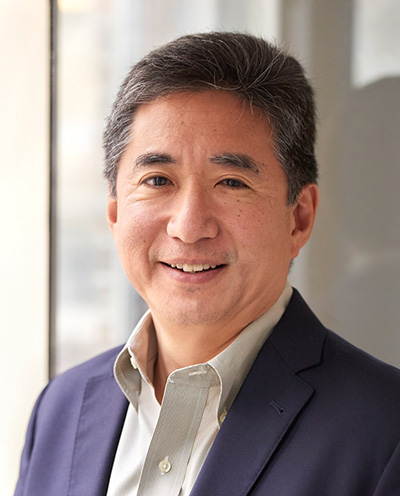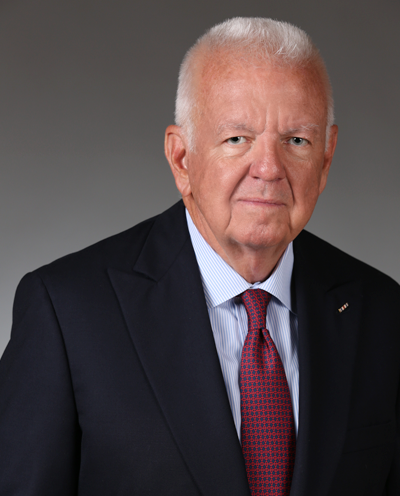Oral presentation shows clinical data demonstrating clearance of infection in initial days of treatment of candidemia following one dose of rezafungin compared to multiple daily doses of standard of care
Three additional presentations to highlight areas of unmet medical needs to improve treatment of candidemia and invasive candidiasis
SAN DIEGO, July 12, 2021 (GLOBE NEWSWIRE) — Cidara Therapeutics, Inc. (NASDAQ: CDTX), a biotechnology company developing long-acting therapeutics designed to transform the standard of care for patients facing serious fungal or viral infections, today announced new analyses from multiple studies of rezafungin, Cidara’s novel, once-weekly echinocandin, under investigation in Phase 3 development for the treatment of candidemia and invasive candidiasis and prevention of invasive fungal infections, at the 31st European Congress of Clinical Microbiology and Infectious Diseases (ECCMID). Cidara’s oral presentation discusses new efficacy data from a sub-analysis of the previously completed STRIVE Phase 2 trial. The scientific program includes three e-Posters on rezafungin and real world echinocandin use.
“We are excited to present data, including new analyses from the STRIVE Phase 2 clinical trial, that reinforce rezafungin’s potential as a therapy for the treatment of candidemia and invasive candidiasis,” said Taylor Sandison, M.D., M.P.H., chief medical officer of Cidara. “We look forward to corroborating the results of our Phase 2 STRIVE program in our ongoing Phase 3 RESTORE trial in which we are testing whether the once-weekly, high front-loaded dosing of rezafungin can result in improved patient outcomes versus the daily dosing of standard of care. We are making significant progress in advancing the ReSTORE trial, with top-line data expected by the end of 2021.”
Alex Soriano, M.D., Ph.D., chief of infectious diseases service, University of Barcelona, added, “There are significant shortcomings related to the current standards of care for fungal infections, defined by high rates of morbidity and mortality, and limited efficacy and therapeutic options, that do not meet the needs of patients. Importantly, if we can clear infections faster, we may be able to improve patient outcomes. Therefore, these data demonstrating significant reduction in time to negative blood culture compared to caspofungin underscore the potential impact of rezafungin on the candidemia and invasive candidiasis treatment landscape, and I look forward to seeing the Phase 3 results later this year.”
Cidara’s oral presentation, titled “Analysis of Efficacy from STRIVE Phase 2 Trial of Rezafungin Treatment of Candidemia and/or Invasive Candidiasis: Outcomes During Initial Days of Treatment,” highlights a new sub-analysis from the STRIVE Phase 2 trial examining efficacy outcomes in the initial days of rezafungin treatment versus standard of care treatment with caspofungin. Key highlights include:
- The percentage of patients with negative blood culture at 24 and 48 hours was higher in the rezafungin group than in the caspofungin group, as were rates of mycological cure and overall success at Day 5.
- There was a statistically significant difference in the time to negative blood culture between rezafungin and caspofungin in patients with more aggressive infection, as defined by a positive blood culture between 12 hours before and 72 hours after enrollment.
- In the STRIVE trial, in more than 200 patients enrolled, safety and tolerability findings were comparable between treatments, consistent with the established safety profile of the echinocandin class.
- The ongoing Phase 3 ReSTORE trial (NCT03667690) will further contribute to the safety and efficacy database on rezafungin.
STRIVE was an international, multicenter, double-blind, trial evaluating the safety, tolerability and efficacy of once-weekly intravenous dosing of rezafungin compared to once-daily dosing of caspofungin in patients with candidemia and/or invasive candidiasis.
Key findings from Cidara’s three e-Poster presentations are summarized below.
Title: Analysis of Safety from STRIVE Phase 2 Trial of Rezafungin Treatment of Candidemia and/or Invasive Candidiasis: Assessment of Adverse Events and Laboratory Values
- Additional safety endpoints, including liver function tests, were evaluated in patients with candidemia and/or invasive candidiasis treated with rezafungin once-weekly compared with caspofungin once daily.
- Data demonstrate comparable safety of rezafungin to caspofungin in patients with candidemia and/or invasive candidiasis.
Title: Development and validation of a modified EUCAST yeast broth microdilution MIC method for rezafungin to mitigate nonspecific binding through incorporation of Tween®20
- Modified EUCAST yeast susceptibility testing method for rezafungin diminished variability without impacting the ability to differentiate fks mutant strains.
- If successfully validated, rezafungin use would be enabled in this standardized broth-based antifungal susceptibility testing methodology.
Title: A Multicenter Pharmacoepidemiologic Evaluation of Echinocandin Use
- Analysis of real-world echinocandin use, across 20 U.S.-based hospitals, in 1,665 patients with positive Candida culture, showed that a significant proportion of echinocandin courses started during hospitalization and continued after discharge, with outpatient use more common for intra-abdominal related infections and candidemia.
- Data demonstrated that the main reasons for continuing an echinocandin post hospital discharge were azole non-susceptible Candida and azole toxicity.
Following the meeting, copies of the presentations will be made available on the Publications section of Cidara’s website.
About Rezafungin
Rezafungin is a novel once-weekly echinocandin under investigation for both the treatment and prevention of serious fungal infections, such as candidemia and invasive candidiasis. The structure and properties of rezafungin are specifically designed to improve upon a clinically validated mechanism intended to enhance its efficacy and safety potential for patients. Cidara is currently conducting a Phase 3 clinical trial with rezafungin for the treatment of candidemia and/or invasive candidiasis (ReSTORE trial) and a second Phase 3 clinical trial of once-weekly rezafungin for the prevention of invasive fungal disease in patients undergoing allogeneic blood and marrow transplantation (ReSPECT trial).
About Cidara Therapeutics
Cidara is developing long-acting therapeutics designed to transform the standard of care for patients facing serious fungal or viral infections. The Company’s portfolio is comprised of its lead antifungal candidate, rezafungin, in addition to AVCs for the prevention and treatment of influenza and other viral diseases from Cidara’s proprietary Cloudbreak® antiviral platform. Cidara is headquartered in San Diego, California. For more information, please visit www.cidara.com.
Forward-Looking Statements
This release contains “forward-looking statements” within the meaning of Section 27A of the Securities Act of 1933, as amended, and Section 21E of the Securities Exchange Act of 1934, as amended, and such forward-looking statements are made pursuant to the safe harbor provisions of the Private Securities Litigation Reform Act of 1995. “Forward-looking statements” describe future expectations, plans, results, or strategies and are generally preceded by words such as “anticipates,” “expect,” “may,” “plan” or “will”. Forward-looking statements in this release include, but are not limited to, statements related to the potential for rezafungin to be a safe and effective treatment for candidemia and invasive candidiasis or to clear infections faster than the standard of care and improve patient outcomes, and whether the ReSTORE trial will be timely completed and top line data announced by the end of 2021. Such statements are subject to a multitude of risks and uncertainties that could cause future circumstances, events, or results to differ materially from those projected in the forward-looking statements, such as unanticipated delays in or negative results from Cidara’s clinical trials, impacts of the COVID-19 pandemic on patient enrollment or other obstacles to the development of rezafungin. These and other risks are identified under the caption “Risk Factors” in Cidara’s most recent Quarterly Report on Form 10-Q and other filings subsequently made with the Securities and Exchange Commission. All forward-looking statements contained in this press release speak only as of the date on which they were made and are based on management’s assumptions and estimates as of such date. Cidara does not undertake any obligation to publicly update any forward-looking statements, whether as a result of the receipt of new information, the occurrence of future events or otherwise.
INVESTOR CONTACT:
Brian Ritchie
LifeSci Advisors
(212) 915-2578
britchie@lifesciadvisors.com
MEDIA CONTACT:
Patrick Bursey
LifeSci Communications
(203) 430-9545
pbursey@lifescicomms.com

 René Russo, PharmD, BCPS
René Russo, PharmD, BCPS Roger J. Pomerantz, M.D., F.A.C.P.
Roger J. Pomerantz, M.D., F.A.C.P. Christine Ann Miller
Christine Ann Miller Graham G. Lumsden
Graham G. Lumsden Marco Taglietti, M.D.
Marco Taglietti, M.D. Ankit Mahadevia
Ankit Mahadevia Jeffrey Stein, Ph.D.
Jeffrey Stein, Ph.D. Evan Loh, M.D.
Evan Loh, M.D. Michael Dunne, M.D
Michael Dunne, M.D Ciara Kennedy, Ph.D.
Ciara Kennedy, Ph.D. Ted Schroeder
Ted Schroeder Kevin Finney
Kevin Finney

 Stephen Conafay
Stephen Conafay Christopher J. Burns, Ph.D.
Christopher J. Burns, Ph.D.

 Corey Fishman
Corey Fishman Felix Faupel
Felix Faupel Adrian Nivoliez
Adrian Nivoliez